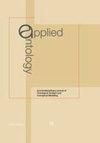从智慧城市到智慧社会:从用户生成内容中检测问题的生活质量本体论模型
IF 3.5
4区 计算机科学
Q3 COMPUTER SCIENCE, ARTIFICIAL INTELLIGENCE
引用次数: 0
摘要
社交媒体平台已经成为一种全球性的交流现象,用户通过文本、图像、视频、音频或它们的组合发布内容,以传达观点、报道正在发生的事实或展示当前感兴趣的情况。当市民成为社区问题的积极社会传感器时,智慧城市应用可以从社交媒体和数字参与平台中受益。事实上,分析和解释用户生成内容的系统可以从数字世界中提取可操作的信息,以提高公民的生活质量。本文旨在对自动问题检测所需的知识进行建模,通过对基于文本的用户生成内容项的分析再现公民对问题的意识。因此,本研究的主要目标有两个。一方面,我们提出了本体论模型的基础,该模型对影响公民社会生活质量的问题类型进行了分类。在这方面,本研究对基于社会感知范式的本体论的发展做出了重大贡献,以支持智能社会的发展。另一方面,我们描述了文本处理模块的体系结构,该模块依赖于该本体来执行问题检测,其中涉及主题分类和关键字识别任务。本文章由计算机程序翻译,如有差异,请以英文原文为准。
From Smart City to Smart Society: A quality-of-life ontological model for problem detection from user-generated content
Social-media platforms have become a global phenomenon of communication, where users publish content in text, images, video, audio or a combination of them to convey opinions, report facts that are happening or show current situations of interest. Smart-city applications can benefit from social media and digital participatory platforms when citizens become active social sensors of the problems that occur in their communities. Indeed, systems that analyse and interpret user-generated content can extract actionable information from the digital world to improve citizens’ quality of life. This article aims to model the knowledge required for automatic problem detection to reproduce citizens’ awareness of problems from the analysis of text-based user-generated content items. Therefore, this research focuses on two primary goals. On the one hand, we present the underpinnings of the ontological model that categorises the types of problems affecting citizens’ quality of life in society. In this regard, this study contributes significantly to developing an ontology based on the social-sensing paradigm to support the advance of smart societies. On the other hand, we describe the architecture of the text-processing module that relies on such an ontology to perform problem detection, which involves the tasks of topic categorisation and keyword recognition.
求助全文
通过发布文献求助,成功后即可免费获取论文全文。
去求助
来源期刊

Applied Ontology
COMPUTER SCIENCE, ARTIFICIAL INTELLIGENCE-COMPUTER SCIENCE, INFORMATION SYSTEMS
CiteScore
4.80
自引率
30.00%
发文量
15
审稿时长
>12 weeks
期刊介绍:
Applied Ontology focuses on information content in its broadest sense. As the subtitle makes clear, two broad kinds of content-based research activities are envisioned: ontological analysis and conceptual modeling. The former includes any attempt to investigate the nature and structure of a domain of interest using rigorous philosophical or logical tools; the latter concerns the cognitive and linguistic structures we use to model the world, as well as the various analysis tools and methodologies we adopt for producing useful computational models, such as information systems schemes or knowledge structures. Applied Ontology is the first journal with explicit and exclusive focus on ontological analysis and conceptual modeling under an interdisciplinary view. It aims to establish a unique niche in the realm of scientific journals by carefully avoiding unnecessary duplication with discipline-oriented journals. For this reason, authors will be encouraged to use language that will be intelligible also to those outside their specific sector of expertise, and the review process will be tailored to this end. For example, authors of theoretical contributions will be encouraged to show the relevance of their theory for applications, while authors of more technological papers will be encouraged to show the relevance of a well-founded theoretical perspective. Moreover, the journal will publish papers focusing on representation languages or algorithms only where these address relevant content issues, whether at the level of practical application or of theoretical understanding. Similarly, it will publish descriptions of tools or implemented systems only where a contribution to the practice of ontological analysis and conceptual modeling is clearly established.
 求助内容:
求助内容: 应助结果提醒方式:
应助结果提醒方式:


